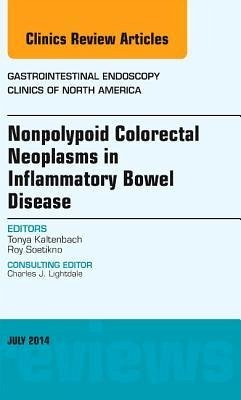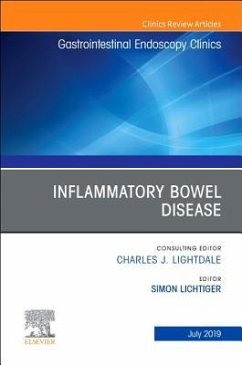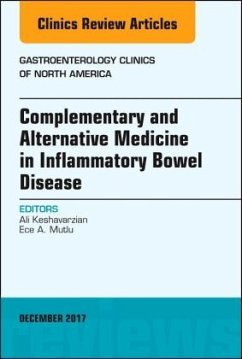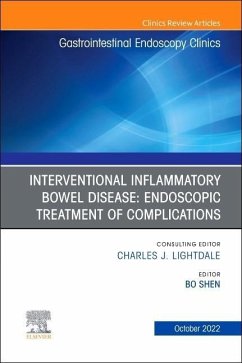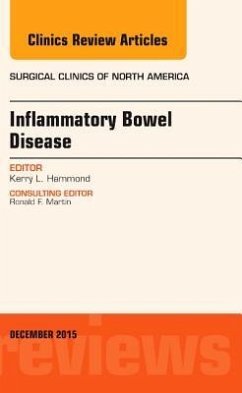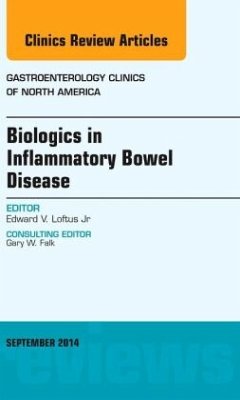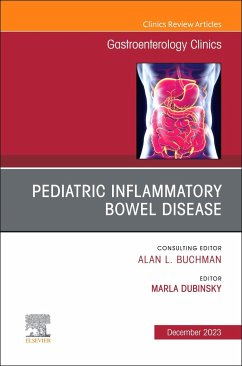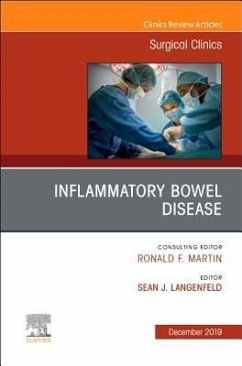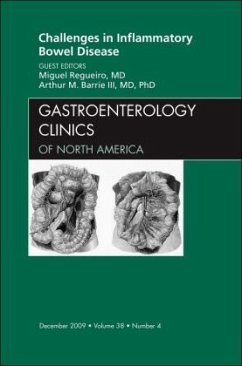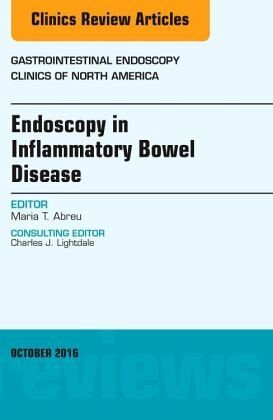
Endoscopy in Inflammatory Bowel Disease, an Issue of Gastrointestinal Endoscopy Clinics of North America
Volume 26-4

PAYBACK Punkte
42 °P sammeln!
The field of inflammatory bowel disease has evolved in many ways. The first has been the revolution in medical therapy for the disease. With the advent of biologic therapy, the aspirational goal of therapy has become mucosal healing. These medications have also made it possible to avoid or delay surgery for ulcerative colitis and Crohn's disease. Although non-invasive strategies such as MR or CT enterography or stool-based assays are helpful, they have not been able to replace the prognostic information provided by endoscopy. Simultaneously, the quality and spectrum of tools available to perfo...
The field of inflammatory bowel disease has evolved in many ways. The first has been the revolution in medical therapy for the disease. With the advent of biologic therapy, the aspirational goal of therapy has become mucosal healing. These medications have also made it possible to avoid or delay surgery for ulcerative colitis and Crohn's disease. Although non-invasive strategies such as MR or CT enterography or stool-based assays are helpful, they have not been able to replace the prognostic information provided by endoscopy. Simultaneously, the quality and spectrum of tools available to perform endoscopy has widened. High resolution endoscopes are now the norm and are nearly as good as chromoendoscopy for identifying dysplasia in ulcerative colitis patients. Most gastroenterologists also perform dilations but do not generally do this for patients with IBD. Finally, newer devices such as enteroscopes, endoscopic ultrasound, and endomicroscopes are being incorporated into the algorithms to diagnose and treat complications of IBD. This issue highlights all of these advances by the experts in their fields.




